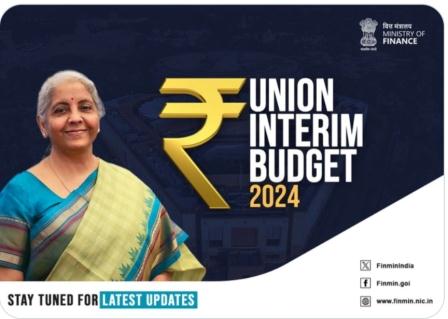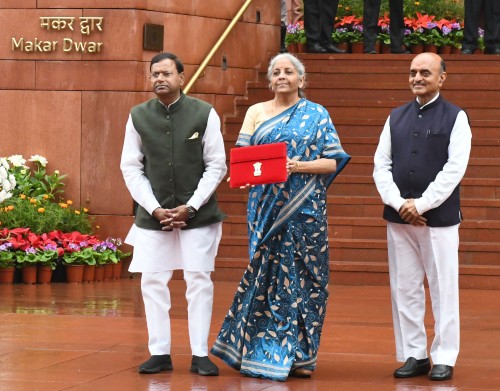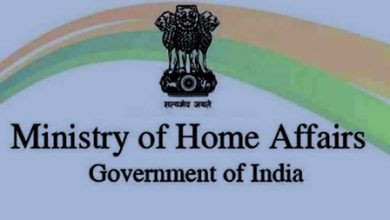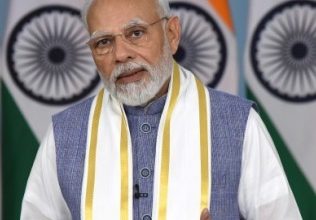Union Budget : NO CHANGE PROPOSED IN TAXATION


During the presentation of the Interim Union Budget for 2024-2025 in Parliament today, the Finance and Corporate Affairs Minister, Smt Nirmala Sitharaman, announced that no changes relating to taxation have been proposed. The Government has retained the same rates for direct taxes and indirect taxes, including import duties. However, the Government has extended certain tax benefits to Start-Ups and investments made by sovereign wealth or pension funds, as well as tax exemptions on certain income of some IFC units, by one year up to 31st March, 2025, to provide continuity in taxation.
Withdrawal of Outstanding direct tax demands
Sitharaman announced measures to improve taxpayer services, aligning with the government’s vision to enhance ease of living and ease of doing business.
A significant number of petty, non-verified, non-reconciled, or disputed direct tax demands, some dating as far back as 1962, continue to remain on the books, causing anxiety to honest taxpayers and hindering refunds of subsequent years.
The Interim Budget proposes to withdraw such outstanding direct tax demands up to Rs. 25,000/- pertaining to the period up to the financial year 2009-10 and up to Rs. 10,000/- for financial years 2010-11 to 2014-15. This measure is expected to benefit about a crore taxpayers.
Direct tax collections trebled
Sitharaman expressed appreciation for the taxpayers for their support, mentioning that over the last 10 years, direct tax collections have more than trebled and the number of return filers has swelled to 2.4 times. She highlighted that the Government has reduced and rationalized taxation , resulting in no tax liability for taxpayers with income up to Rs. 7 lakh under the new tax regime. She also mentioned the increase in the threshold for presumptive taxation for retail businesses as well as professionals.
The Minister noted the decrease in corporate tax rates for existing domestic companies from 30% to 22%, and for certain new manufacturing companies to 15%.
In her Interim Budget speech, she stated that over the last 5 years, the Government has focused on improving taxpayer services, leading to the transformation of the age-old jurisdiction-based assessment system, and making filing tax returns simpler and easier.
She added that the Government has reduced the average processing time of returns from 93 days in the year 2013-14 to a mere ten days this year, thereby making refunds faster.
GST reduced compliance burden
Smt. Nirmala Sitharaman, the Union Minister for Finance & Corporate Affairs, stated that GST has reduced the compliance burden on trade and industry by unifying the highly fragmented indirect tax regime in India. She mentioned a recent survey conducted by a leading consulting firm, indicating that 94% of industry leaders view the transition to GST as largely positive. In her Interim Budget speech, she highlighted the fact that the tax base of GST has more than doubled and the average monthly gross GST collection has almost doubled to Rs. 1.66 lakh crore this year.
States have also benefited, with States’ SGST revenue achieving a buoyancy of 1.22 in the post-GST period of 2017-18 to 2022-23, including compensation released to states. The Minister emphasized that the biggest beneficiaries are the consumers, as reduction in logistics cost and taxes have brought down prices of most goods and services.
Smt. Sitharaman mentioned that the import release time declined by 47 per cent to 71 hours at Inland Container Depots, by 28 per cent to 44 hours at air cargo complexes, and by 27 per cent to 85 hours at sea ports over the last four years since 2019.
Laying of White Paper
The Union Minister addressed the status of the Indian economy, indicating that in 2014, the responsibility to mend the economy step by step and to put the Governance systems in order was enormous. She stated that the Government successfully undertook this responsibility following its strong belief of ‘nation-first’. Assurances were given that the crisis of those years has been overcome and the economy has been put firmly on a high sustainable growth path with all-round development.
The Government made an announcement that it will release a white paper, focusing on ‘where we were then till 2014 and where we are now’, solely for the purpose of drawing lessons from the mismanagement of those years.




